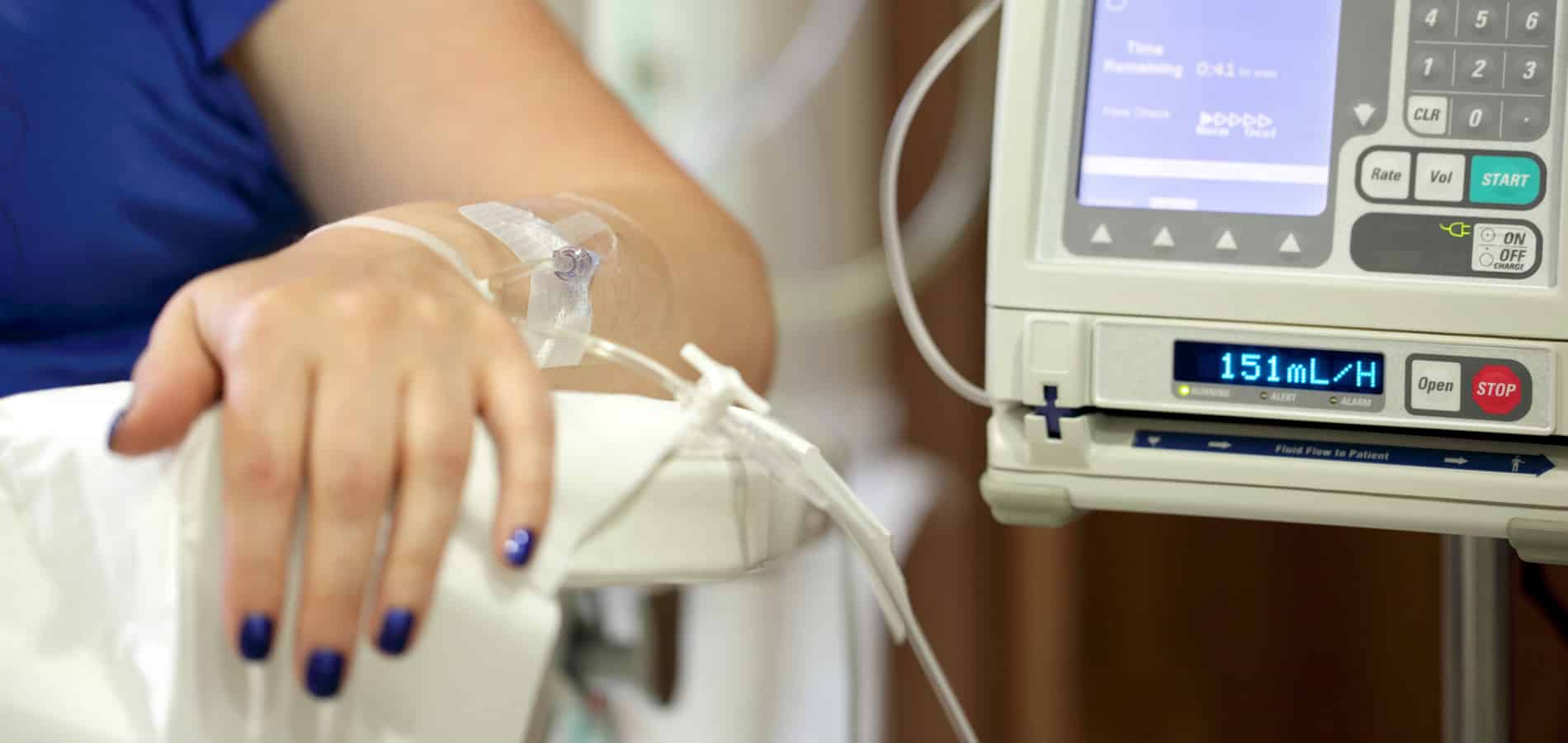
Immunotherapy
Immunotherapy or immunological cancer therapy is a group of different treatment methods that aim to destroy cancer cells by influencing your body’s defence system in different ways.
Immunological therapies may help with some cancers
Immunotherapy seeks to boost the body’s immune system and in that way induce your body’s immune system to attack cancer cells. In immunotherapy you may be administered substances or cells that destroy cancer cells. Immunological cancer therapy is currently an active focus of research and development.
Antibody therapy
In recent decades antibodies have been an active focus for development. Antibodies have an impact in cancer treatment in many ways. Antibodies developed from cancer tissue can bind to markers (antigens) on the surface of cancer tissue. It is as if the antibodies mark the cancer cells for destruction by the cells of your immune system or trigger the cells’ self-destruction.
Antibodies may also inhibit the influence of various cancer-promoting growth factors. Antibodies can also be used to deliver cancer-destroying substances to cancer cells (cytotoxic drugs or radioactive molecules), and so the damage to healthy cells is less. Your body can tolerate many types of antibody treatment fairly well. The most common adverse side effects are fever, chills and rashes.
Rituximab is the first antibody approved for cancer treatment. Rituximab is used either alone or in combination with chemotherapy in lymphoma. Another newer antiviral is obinutuzumab, which causes a stronger immuno-activation.
HER2 antibodies are one of the most important advances in the treatment of solid cancers. Of these, trastuzumab is one of the most widely used anti-cancer antibody therapies. Its indications include breast and gastric cancer with HER2 gene amplification. Trastuzumab has significantly improved the prognosis of patients in these disease groups, not only if the disease has spread, but also as adjuvant treatment after surgery for breast cancer.
EGFR antibodies (cetuximab, panitumumab and nesitumumab) are used in the treatment of advanced forms of colorectal, head and neck and non-small cell lung cancer, depending on the product.
The first approved anti-VEGF-acting antibody therapy was bevacizumab, which, in combination with cell-salvage therapy, is indicated for the treatment of a number of solid tumours. These include bowel and gynaecological cancers. Another drug acting on this signalling cascade is ramusirumab, which is used to treat stomach, bowel and non-small cell lung cancer.
Read more

Cancer surgery
Surgery is the first option in the treatment of many firm malignant tumours. Surgery to treat cancer removes the cancerous tumour and the healthy tissue surrounding it to prevent the spread of the tumour locally.
Read article
Cytotoxic drugs or cytostatics
Cytotoxic drugs or cytostatics (also cytotoxic chemotherapy) are drugs used to destroy cancer cells. Cytotoxic drugs inhibit cell division and in this way cause cancer cells to die. Cytotoxic drugs are transported in the bloodstream throughout the body.
Read article
Hormone therapy
In some cancers, cancer cells exploit the body’s hormones to grow. Hormonal cancer therapy works by preventing this activity. Hormone therapy for cancer therefore seeks to prevent production and effects of hormones that are vital for the cancer in question.
Read article